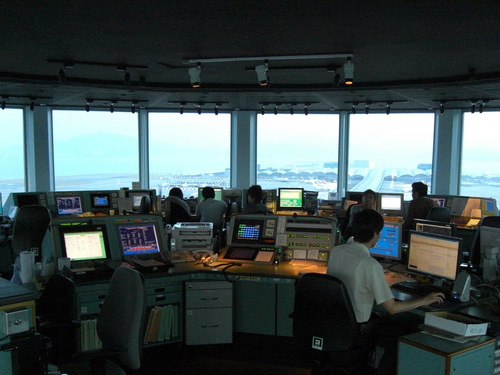The Civil Aviation Department has moved to refute a investigative report that claimed the computer system used by air traffic controllers at Hong Kong International Airport had experienced intensifying glitches in recent months.
In a statement released yesterday, the department said the regular rebooting of air traffic management system (ATMS) workstations by aircraft controllers at Hong Kong international airport was a part of “regular housekeeping procedures”.
It added that the ATMS has not experienced any crash since its commissioning.
The statement was in response to a report released yesterday by local investigative agency FactWire claiming that, since April, some workstations had experienced “computer crashes” and required rebooting on 20 separate occasions.
The workstations provide integrated aviation, surveillance and communication data for air traffic controllers to manage flights coming in and out of the airport.
Quoting anonymous frontline air traffic controllers, FactWire that some workstations experienced malfunctions including delayed flight data updates, frozen screens and unresponsiveness to commands.
The problems required system reboots — which took about 15 minutes and, sometimes, occurred during peak air traffic periods, according to the story.
FactWire reported that problems with the system — called the Raytheon Auto Trac III and also known as AT3 — had intensified since it released a report in May revealing that some of the workstations had required fortnightly rebooting to prevent sluggish performance.
The investigative group also noted that the same system is also used in New Delhi and had been criticized by aviation industry figures in India, who feared the problems could potentially lead to a disaster.
In their statement, the CAD noted different workstations were rebooted in phases and said the process did not affect air traffic control services or undermine safety.
“Major overseas air traffic control centers regularly reboot individual workstations based on their needs, which is part of their routine housekeeping procedures,” CAD said.




